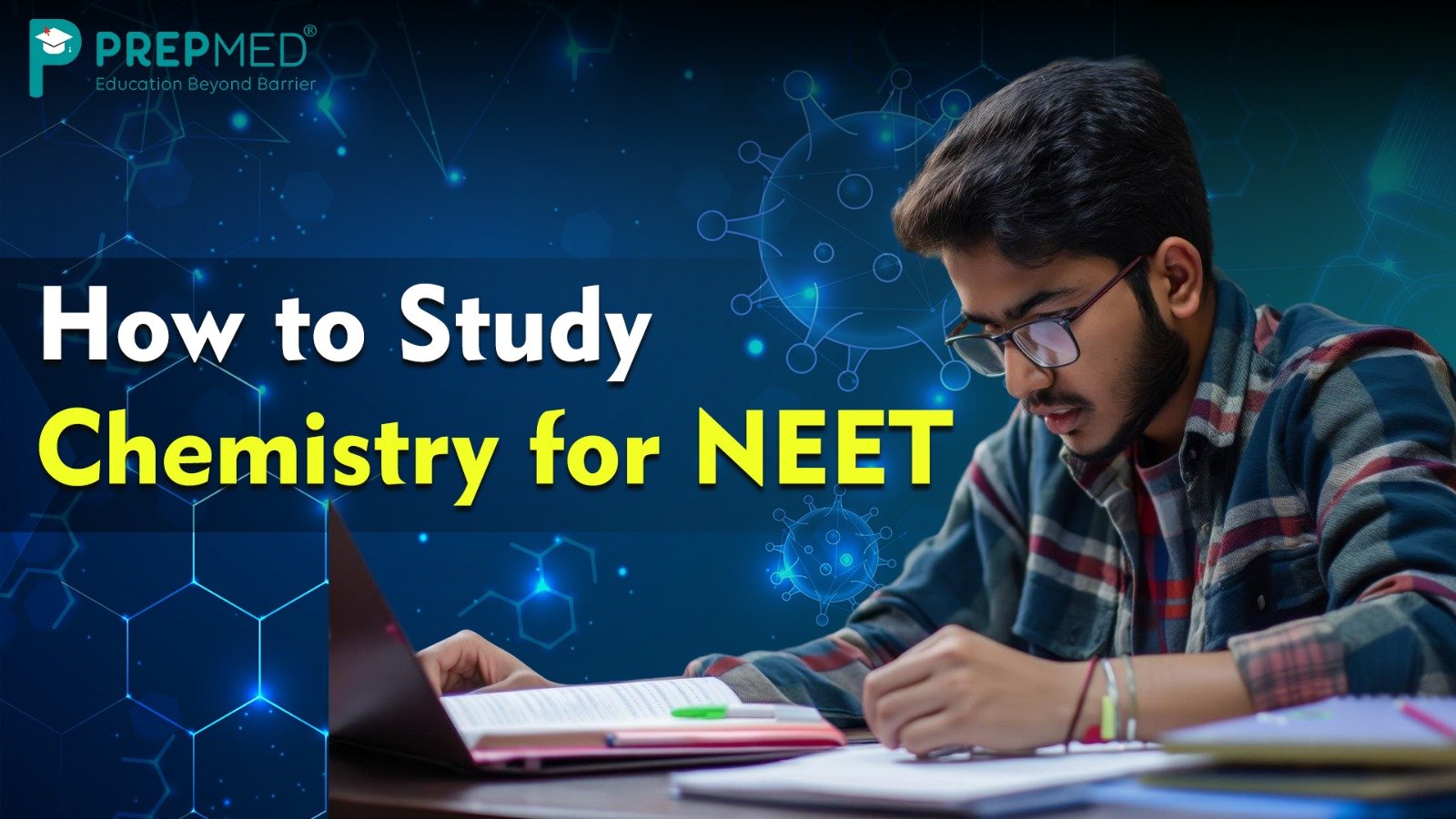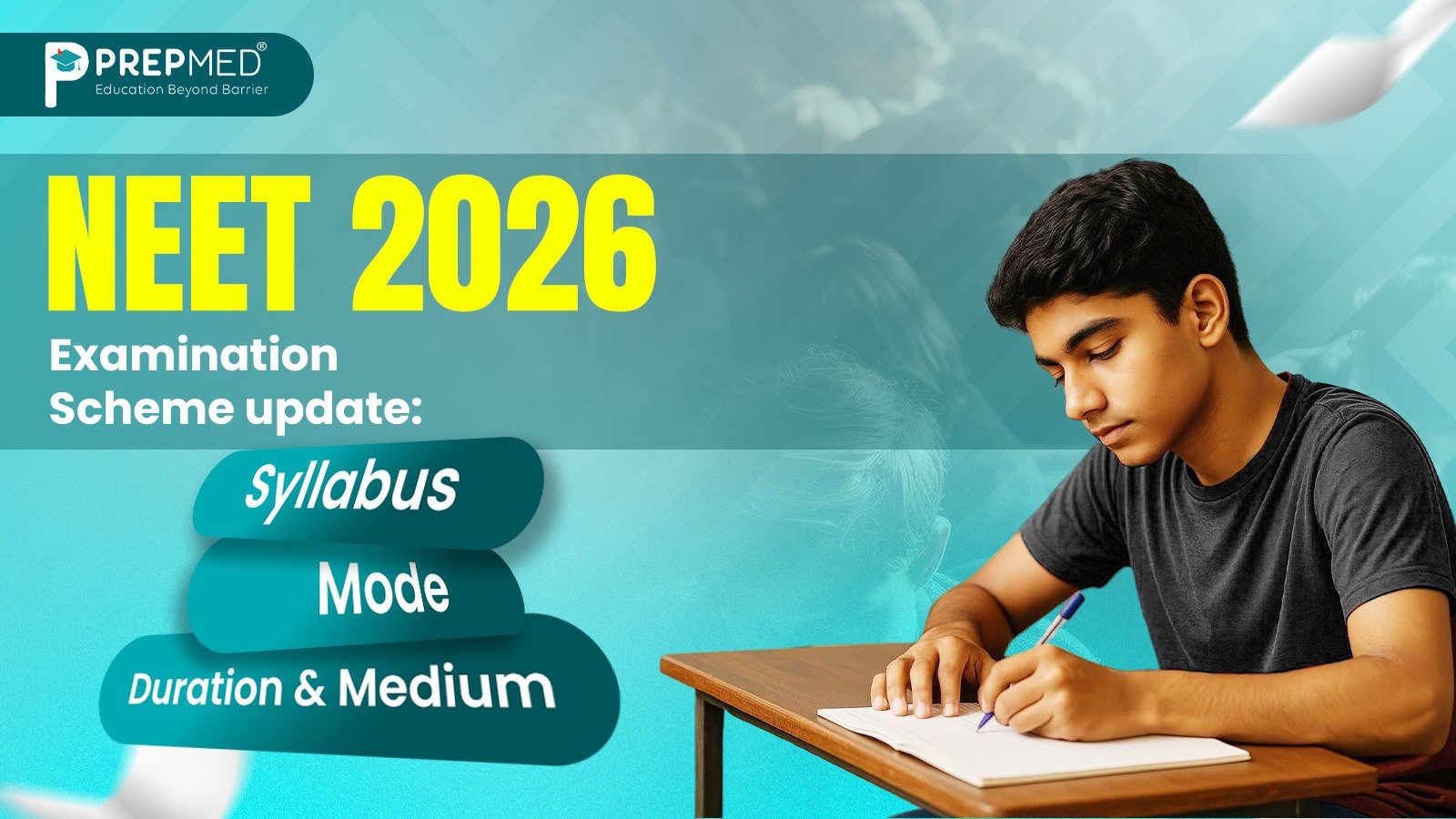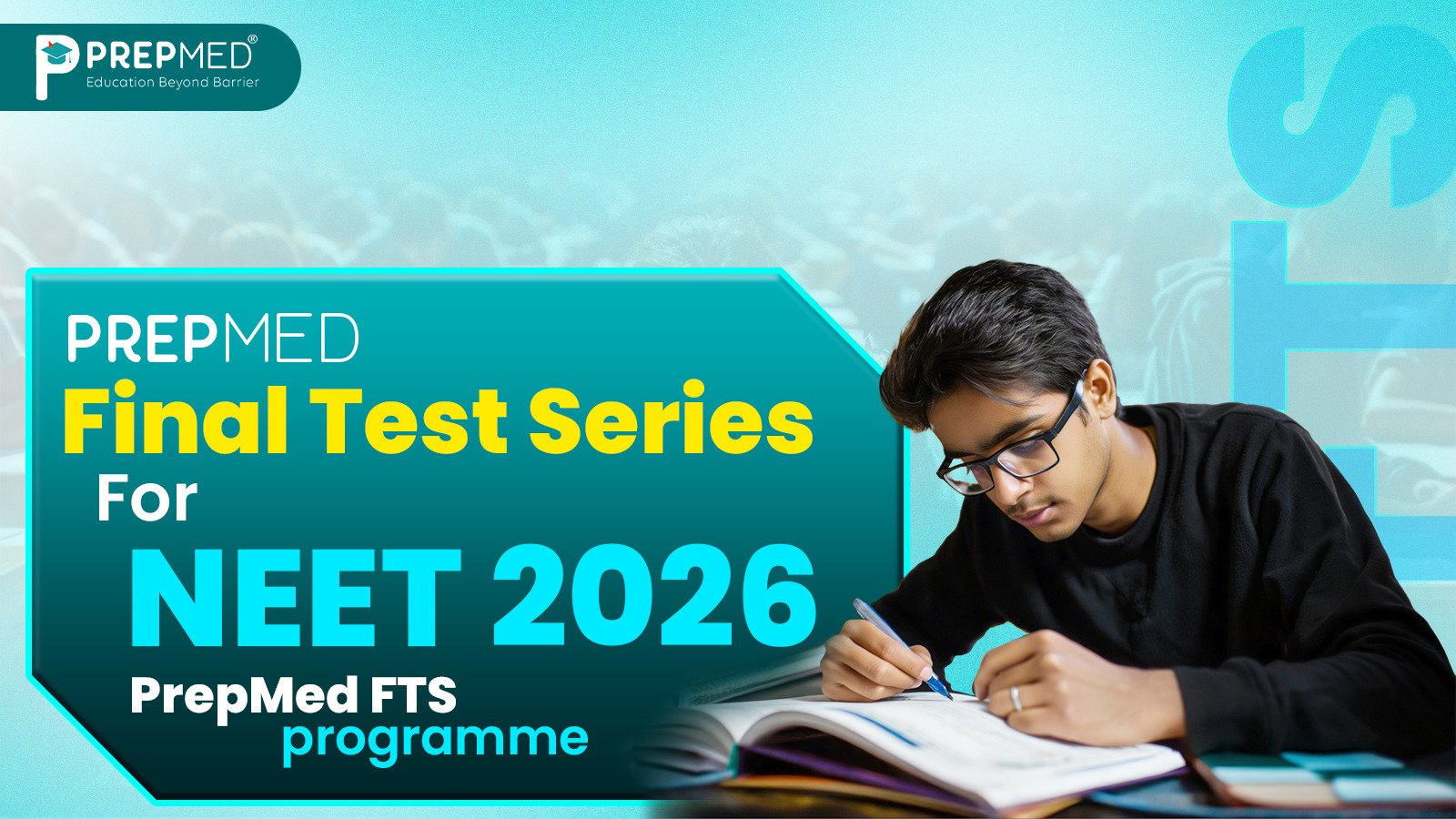July 31, 2025
How to Study Chemistry for NEET
Effective and smart preparation of chemistry can definitely help you in getting a good rank in one of the most competitive exams, NEET. Just with concentrated preparation, tactful planning and regular practice, you may crack NEET chemistry. In this article, we will tell you how to start off studying Chemistry for NEET in an organized manner, you will know what to look for and how to effectively strategise your study with the help of PrepMed, where you will be under the guidance of the team of doctors and coaching with unlimited support.
Understand the NEET chemistry syllabus
First, know your syllabus. The NEET chemistry syllabus covers both Class 11 and 12 topics in Physical, Organic, and Inorganic sections. Key chapters include:
- Class 11: Basic Concepts of Chemistry, Structure of Atom, Chemical Bonding, Thermodynamics, Equilibrium, Redox, Organic principles, Hydrocarbons and Environmental Chemistry.
- Class 12: Solid State, Solutions, Electrochemistry, Kinetics, Surface Chemistry, Isolation of Elements, p‑Block, d‑/f‑Block, Coordination Compounds, Haloalkanes/Arenes, Alcohols/Ethers, Aldehydes/Ketones, Amines, Biomolecules, Polymers, Chemistry in Everyday Life.
Understanding this helps form your roadmap to master NEET Chemistry.
Focus on NEET chemistry chapter wise weightage
Not all chapters carry equal weight. Use chapter‑wise weightage to allocate your time smartly. For NEET 2025, top‑scoring chapters include Coordination Compounds (11-14%), Hydrocarbons (9-10%), Chemical Kinetics (12-15%), Solutions (7-10%), Thermodynamics, p‑Block, Basic Concepts and others.
For example, Chemical Bonding & Molecular Structure and Aldehydes, Ketones & Carboxylic Acids together contribute around 7–9% weight. Allocate study hours accordingly to maximize marks in NEET Chemistry.
Build a strong foundation with NCERT and quality NEET chemistry notes
NCERT is a must. Read each chapter thoroughly—focus on in‑text examples and back exercises. Many PYQs are directly asked from NCERT. You can take help from the coaching modules or reference books, but never neglect NCERT.
Take NEET chemistry notes—PrepMed ensures that all their students receive the NEET chemistry notes after every class. These notes are made by the NEET mentors from NCERT plus key recent PYQs, enabling efficient revision and concept recall.
Choose the NEET chemistry books wisely
While NCERT is essential, reference books help deepen understanding and practice:
- OP Tandon for Physical Chemistry
- JD Lee or Concise Inorganic Chemistry for Inorganic
- MS Chauhan or VK Jaiswal for Organic practice
- Narendra Awasthi for tricky Physical topics like Electrochemistry.
Use coaching modules or additional question banks like Cengage Objective Chemistry if you want extra practice on high‑weight chapters.
Strategize revision and question practice
a) Practice PYQs and coaching module questions
Solve all NEET chemistry question paper PYQs regularly. These reflect how questions are framed in NEET.
b) Make short notes and flashcards
Write formulas, exceptions, mechanisms, periodicity facts, etc., into short notes or flash cards. Flashcards help in quick recall during last‑minute revision.
c) Time management & mocks
Check your overall progress by practicing full‑length mock tests using a timer to simulate the actual exam.
Consolidate concepts across sections
Physical Chemistry
Focus on Mole Concept, Thermodynamics, Kinetics, Electrochemistry, Solutions. Practice numerical consistently and revise formulas. The more questions solved, the less error‑prone you become.
Inorganic Chemistry
Strictly follow NCERT, learn reactions and periodic trends. Use mnemonic aids for s‑, p‑, d‑/f‑Block. Note inorganic exceptions and practice coordination chemistry thoroughly.
Organic Chemistry
Learn reaction mechanisms and reagents. Revision via reaction‑tables or sheets helps. Focus first on General Organic principles, then Hydrocarbons, Aldehydes/Ketones, Amines, etc. Practice JEE‑Main level questions for tougher organic practice.
Get access from top coaching like PrepMed
Perhaps the key difference for many high performers is guided support. PrepMed has the best chemistry teacher for NEET under whose guidance several students have successfully cracked NEET. This teacher, combined with structured lessons, ensures clarity of concepts and alignment with exam trends.
PrepMed’s system ensures that you receive their NEET chemistry notes after every class. This means you get bite‑size, high‑yield notes to revise—reducing the load and improving retention across NEET Chemistry topics.
Monitor your progress and adapt
Maintain an error notebook. Note questions frequently missed, and revisit them weekly. Track your mock test scores subject‑wise. Focus your revision on weaker areas identified in these notebooks. This feedback loop keeps your preparation agile and targeted.
Repeat and revise effectively
Revision is just as important as giving mock tests. Schedule multiple revisions for high‑weight chapters. Approach NCERT again before every mock exam. Use your flashcards and short notes to reinforce memory.
Mindset, consistency, and self-belief
Consistent daily study is key—don’t binge and burn out. Mix topics across Chemistry, Biology, Physics to maintain balance and interest. Be disciplined with your schedule and punctual—especially under your teacher's guidance at PrepMed.
Summing Up
To master NEET Chemistry, start with a deep understanding of the NEET chemistry syllabus and chapter wise weightage, and rely on NEET chemistry books like NCERT and coaching modules. Build and revise using NEET chemistry notes—PrepMed guarantees you get these after every class, guided by the best chemistry teacher for NEET. Prioritize solving NEET chemistry question paper PYQs and mock tests, maintain smart revision tools like flashcards, and track your errors after analyzing every mock test. With commitment, strategy, and quality coaching, Chemistry can become your strength.
By sticking to this approach, your preparation becomes smart, systematic, and success‑oriented.
Conclusion
NEET Chemistry may seem vast, but a smart, focused strategy changes everything. Begin with NCERT alignment, use chapter‑wise weightage to streamline your efforts, practice extensively with quality materials, and revise periodically. Getting access to high-quality resources from PrepMed—with their expert classes, structured notes, and experienced guidance—makes a visible difference in your overall performance. Maintain consistency, manage time wisely, and follow a strict routine. .
Frequently Asked Questions (FAQs)
Q1. What are the most important chapters in NEET Chemistry to focus on?
A: High‑weight chapters include Coordination Compounds, Hydrocarbons, Chemical Kinetics, Thermodynamics, Aldehydes/Ketones, Chemical Bonding, Solutions, and p‑Block elements. Together, these form a major chunk of the exam weight.
Q2. Which NEET chemistry books should I choose apart from NCERT?
A: Recommended books include OP Tandon for Physical, JD Lee (Concise) for Inorganic, MS Chauhan or VK Jaiswal for Organic, and Narendra Awasthi for practice in tricky Physical topics. These reference books help you in practicing different types of questions and simplify the NCERT concepts.
Q3. How can PrepMed help with my NEET Chemistry preparation?
A: PrepMed ensures all students receive the NEET chemistry notes after every class—succinct, high‑yield and exam‑aligned. They also provide instruction under the best chemistry teacher for NEET, whose mentoring helped numerous aspirants crack NEET with top Chemistry scores.
Also read:
NEET 2026 Chemistry Roadmap
Faraday's Law: The Foundation of Electrochemical Reactions
Physical Chemistry chapters for NEET 2026 with weightage






